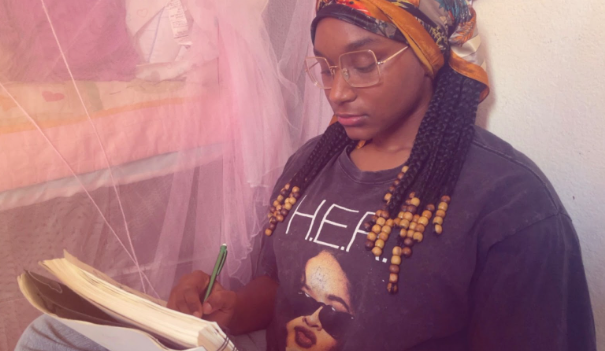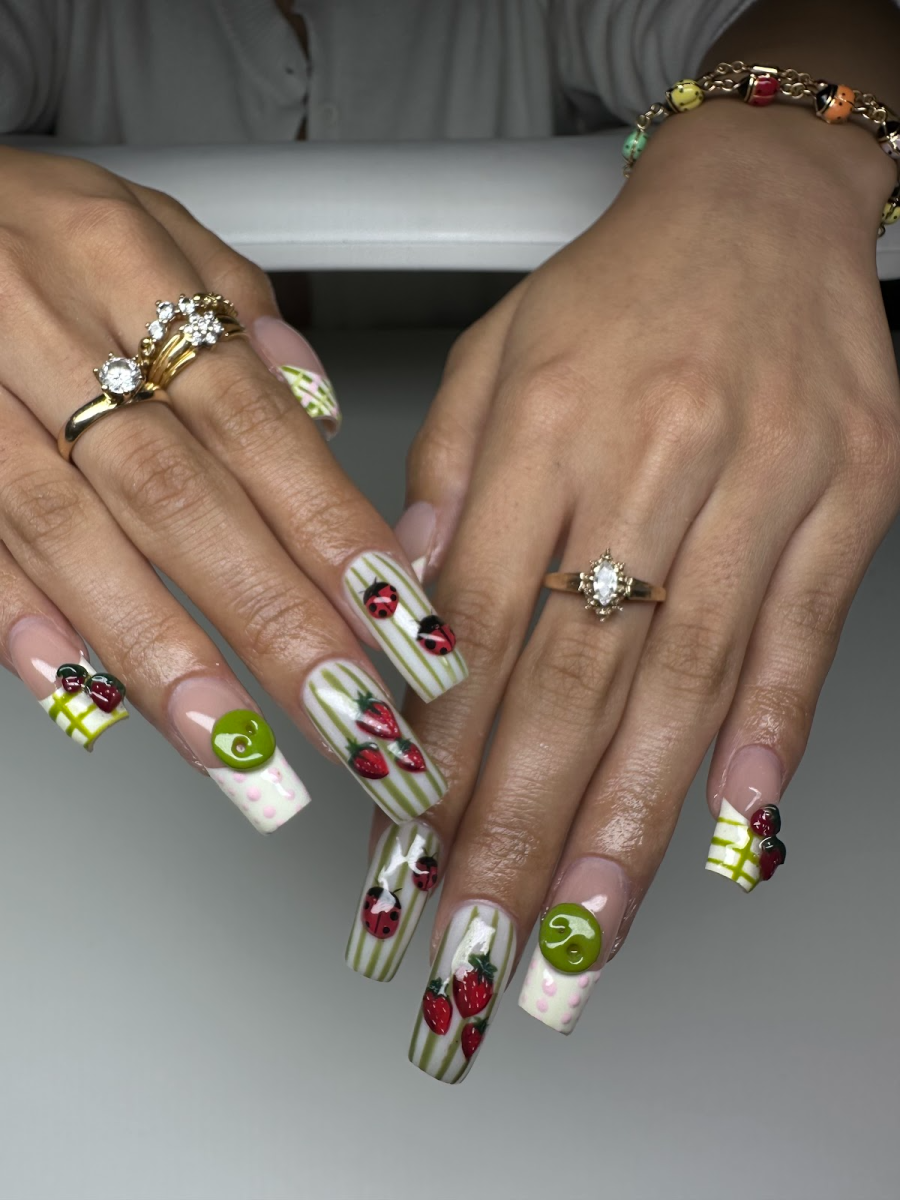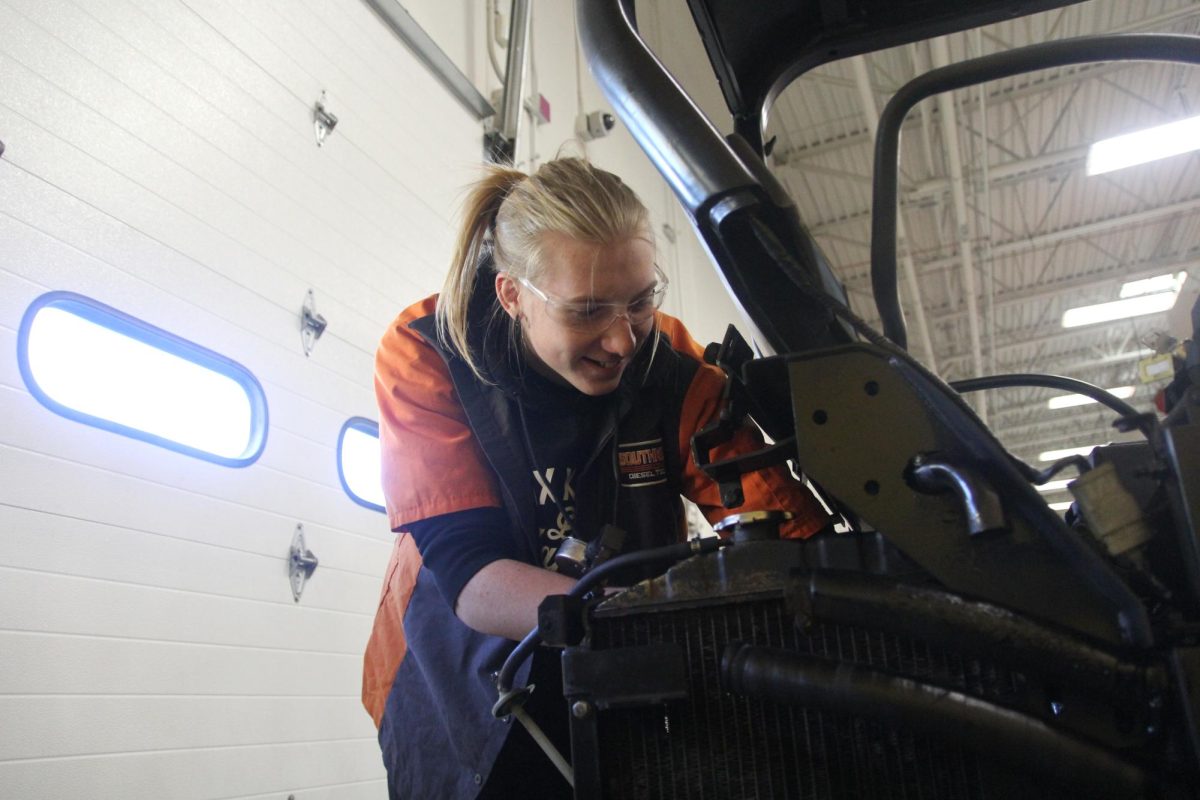She hears her mom call her name and eagerly runs down the stairs. Her mom invites her to help her fry tortillas for dinner. As she places the tortilla onto the skillet, she hears the simmering and popping of the oil.
Growing up in a traditional Mexican household, sophomore Alex Espinoza was influenced by her culture from a young age.
“My parents are from Mexico and they didn’t want [me] to forget [my] culture,” Espinoza said. “They wanted to show me the beauty of it all.”
Espinoza was exposed to traditional foods and clothing growing up. She was also taught traditional dances including Folclorico and Jarabe Tapatio, a hat dance that originated in Jalisco, Mexico.
“About a year ago I remember performing a folclorico piece at church for a spring event,” Espinoza said. “It felt great to feel all the energy from the performers and hear the cheers from the audience. I absolutely loved everything about it.”
Using Spanish, food and clothing, Espinoza tries to incorporate her culture into her everyday life. Her wardrobe mainly consists of Chicano (Mexican American) clothing.
“I think that certain pieces of clothing are very important in my culture because the piece has so much history and holds so many emotions that were carried by our ancestors,” Espinoza said. “My favorite piece is the traditional shoes because they go with anything and look really good.”
While wearing these traditional clothing pieces, Espinoza receives a lot of support, but also a lot of criticism.
“There are many people that say that I shouldn’t be wearing those things and there are others that love it and praise me for it,” Espinoza said. “When people do tell me such vulgar things, I do get discouraged, but I remember it doesn’t matter what they have to say. I tell them I respect them, but I won’t change. When people praise me for it, I get a feeling of warmth and thank them for their kind words.”
Espinoza also makes authentic Mexican dishes for herself and her family every night. She brings these dishes to school for lunch everyday to share with friends, including quesadillas, enchiladas, tamales and pozole.
“In eighth grade I had a friend who only knew the basics of mexican food, so I showed her the traditional dish Menudo,” Espinoza said. “She was surprised and told me she enjoyed the dish. It felt great knowing I introduced her to a part of my culture because she could see the beautiful history behind the people which is opposite of what the media usually portrays.”
Espinoza hopes to grow even closer with her culture and spread her traditions to others.
“If I wasn’t so culturally involved, I wouldn’t know half of the things I know today,” Espinoza said. “I wouldn’t get to know the beauty that my culture brings to the world. I wouldn’t get to know the foods that my relatives grew up on. I wouldn’t know who I am today. I would have an identity crisis right now and I’d probably be lost trying to discover who I am.”

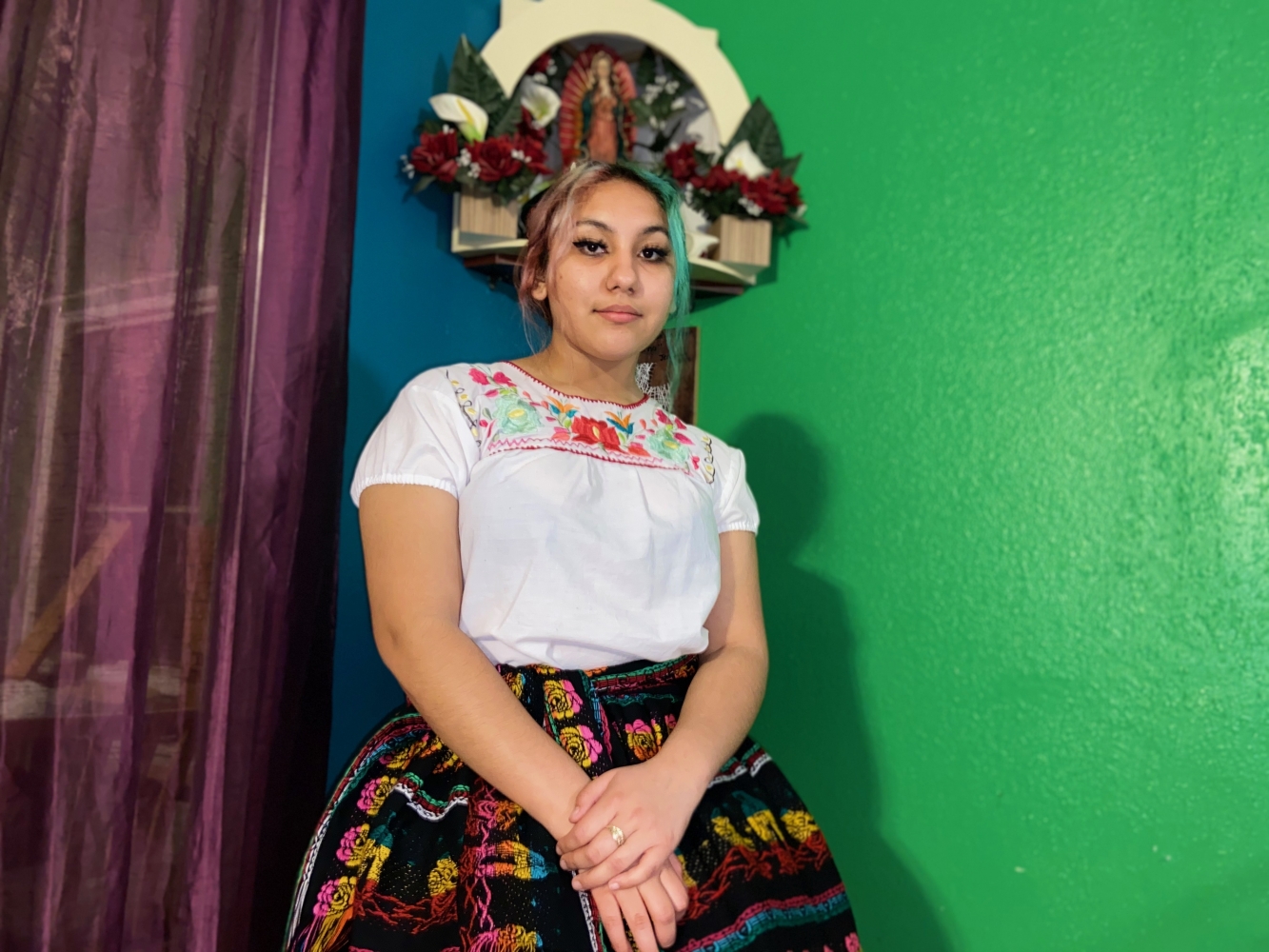

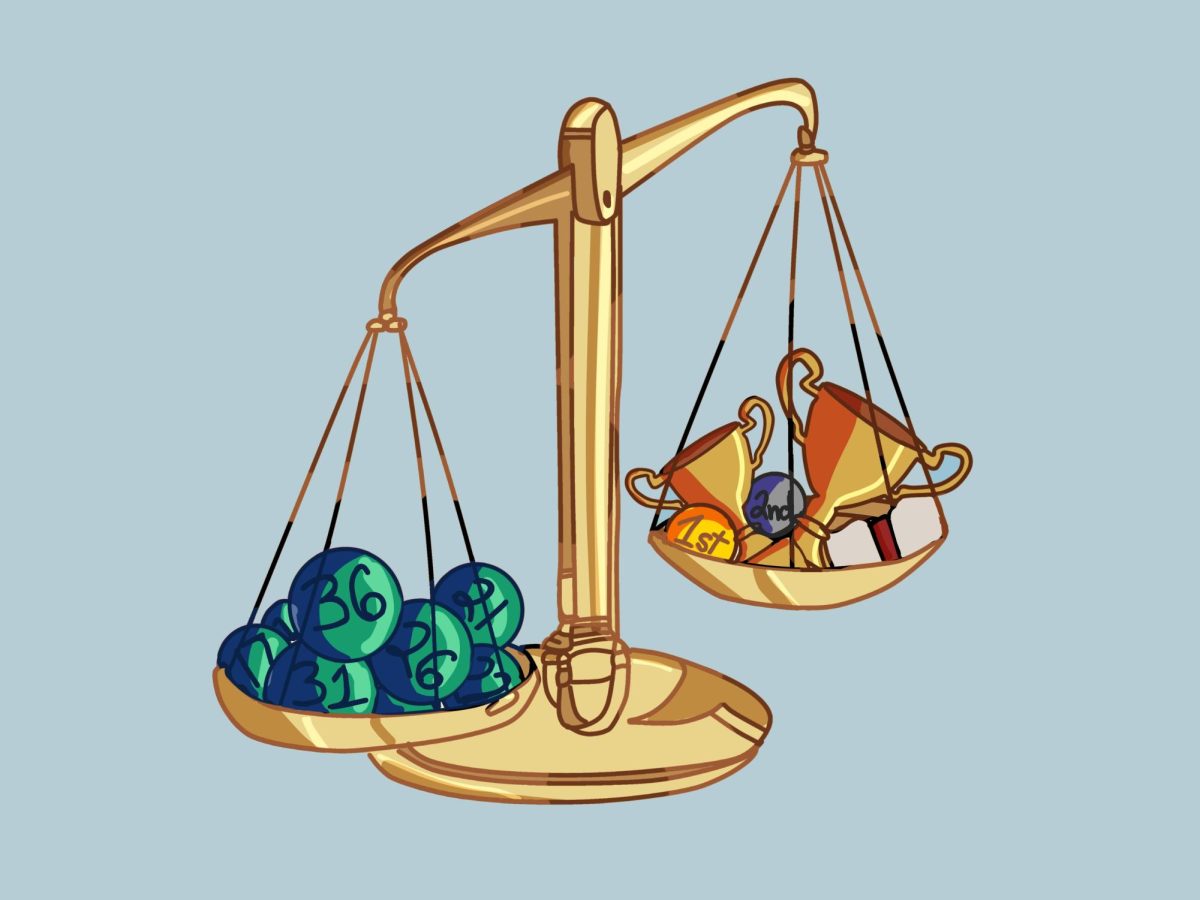

![Weighing her options, senior Allyana Abao decides between going on a practice drive or calling an Uber. Though unlicensed, Abao has considered driving to be a significant milestone of teen independence despite alternatives that provide much easier solutions.
“You're able to be independent and not rely on others,” Abao said. “You're able to get a job, get things that you need, go places you need to go. I have so many places that I want to go to and I ask [my family] for so much. I want to be independent to where they know that I can do things on my own, so they know that they don't have to be there for me.”](https://southwestshadow.com/wp-content/uploads/2025/10/IMG_2922-1200x900.jpg)
![Looking at the board, former BSU secretary Christina Altaye begins to prepare for BSU’s second year of Club Feud. This year, “Are You Smarter Than a Ninth Grader?” will be replacing this event. “I think it’s a fun change [to Club Feud],” BSU Activities Director Hellen Beyene said. “[I think] it’s always fun to do something new and different.”](https://southwestshadow.com/wp-content/uploads/2025/10/Screenshot-2025-09-29-11.06.43.png)

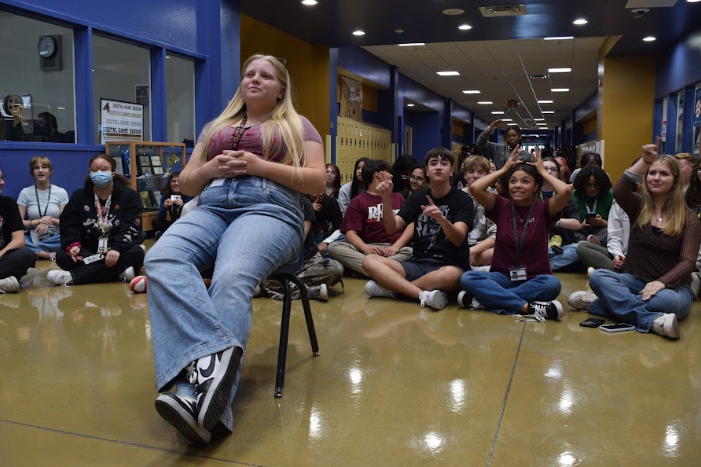

![Grabbing her phone to take a photo, sophomore Vanessa Ta sits down on a bed and takes a couple photos to post on her social media. “I just really [feel] that my favorite cosplayer is everyone lowkey, because I get to see people’s creativity,” Ta said. “I get to see how skilled and talented they are.”](https://southwestshadow.com/wp-content/uploads/2025/10/55A1FC60-BE63-4F24-9B78-65194336319E-e1760926431267.jpg)
![In his fifth period World History class, Thur works with his students individually, helping them as they sort through notes and assorted historical documents. “I’m always willing to try something new,” Thur said. “Some of my best ideas that I’ve received over the years are from students. This year I’m trying out stations for the first time and kids are rotating through and it’s working. Well, some things are [working], I’ve still got to work out the kinks with it. The kids change, why shouldn’t I change too?”](https://southwestshadow.com/wp-content/uploads/2025/10/IMG_8991-1200x800.jpg)
![Fast food has not stayed the same principle of “sit down, order, and get food,” but has turned into a process with multiple layers and complexity. This is largely due to the integration of automation in every aspect of dining. “I'm not that knowledgeable on it, but I've seen videos on TikTok, I'm not really concerned—it doesn’t seem that smart,” senior Dallas Evertt said. “When [some people are just ordering] 18,000 water cups, it sounds really dumb. There was no way [the AI] was gonna put down 18,000 water cups—and that just shows how it’s not going to take anybody’s job soon.”](https://southwestshadow.com/wp-content/uploads/2025/10/Dominante-Image-1200x675.png)
![Squaring up to a practice dummy, sophomore Cypher Andres prepares to throw a punch. Dummies are regularly used to help him prepare certain hits to take his opponents down. “[Boxing dummies help me practice] because it’s basically a model of the body,” Andres said. “It helps with accuracy, such as pressure points behind the ear, and a clean liver shot can end the fight.”](https://southwestshadow.com/wp-content/uploads/2025/10/IMG_5728-e1759850486200-1200x864.jpg)
![Swaying and preparing to toss the tennis ball, Dylan Grove practices serving. Grove had been training in preparation for her upcoming matches against Chaparral and Doral Red Rock. “[Both teams are] both very tough opponents, but I am ready for whatever gets thrown my way,” Grove said.](https://southwestshadow.com/wp-content/uploads/2025/10/image-1200x900.png)
